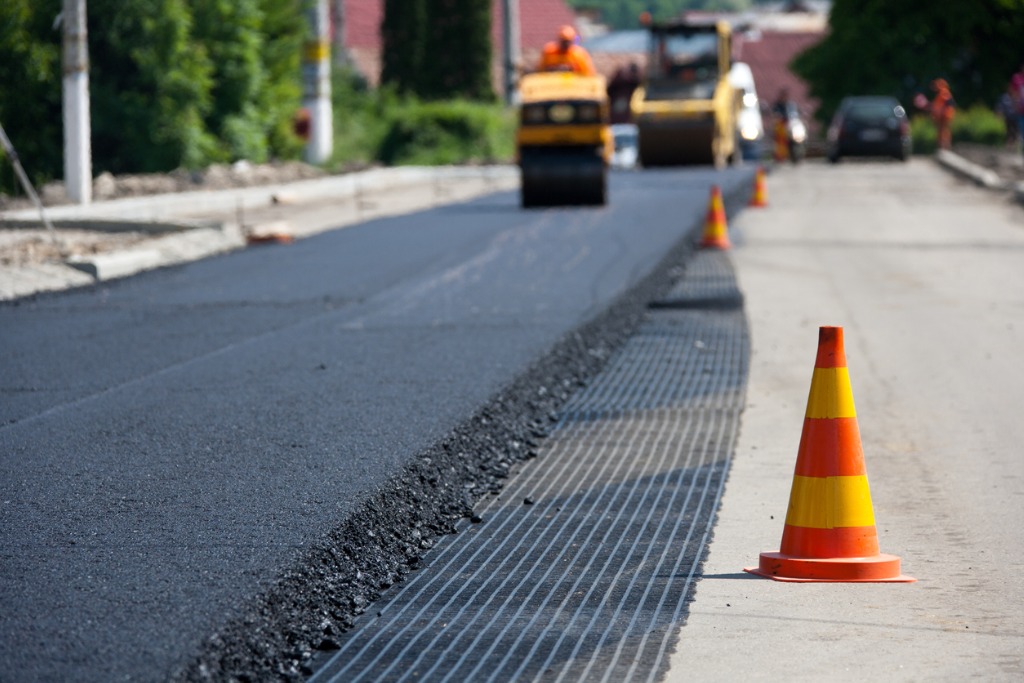Asphalt is a type of pavement that is made up of crushed rock and limestone. It is a combination of coarse and fine aggregates that are bound together with a binder such as tar, oil, or rubber. It is a mixture of finely ground, bitumen (exposed to extreme heat), and aggregate. It can also be mixed with other materials like cement, water, sand, or gravel.
Asphalt is used in construction projects as a base layer to provide protection from the elements and give surface traction. A mixture of refined crude oil, water, and limestone called asphalt is called “bitumen.” The two terms are often used together, but asphalt refers to a mixture of water and limestone.
Concrete is a composite material composed of cement, aggregate materials, water, and other ingredients mixed in the correct proportions to form a solid elastic mass. Concrete is heavier than asphalt, which means it requires stronger machinery and more time to spread. It can be easily poured in place of asphalt, which means less time and cost on site installation and requires less energy to create and maintain.
If concrete gets wet, the water will not run off as quickly as with asphalt, which can lead to puddling or pooling of water in the area that is paved over with concrete. Concrete is a harder surface that can be more dangerous for pedestrians.
What Are the Advantages of Using Concrete Over Asphalt?
 Concrete is a versatile material that can be used in various applications. It is much more durable than asphalt and has a smoother surface. Some of the advantages of concrete over asphalt include:
Concrete is a versatile material that can be used in various applications. It is much more durable than asphalt and has a smoother surface. Some of the advantages of concrete over asphalt include:
- Durability — Concrete is more durable than asphalt because it doesn’t have the same number of pores. It means it can withstand adverse weather conditions as well as heavy traffic. Concrete is often thought to be a better option than asphalt because it is more durable and offers better traction.
- It can be colored — Concrete can be given a variety of colors to suit the aesthetic of your project.
- Resistant to extreme elements — Concrete is more stable than asphalt and is more resistant to damage from natural disasters such as earthquakes and flooding. Concrete is often used in areas where holes need to be dug because it is stronger than asphalt and can be passed through other materials without cracking.
What Are the Advantages of Using Asphalt Over Concrete?
- Asphalt is more cost effective — One of the benefits of choosing asphalt is that it costs less per square foot than its counterpart! What could be better than paying less for a quality product?
- It is easier to fix — Another advantage is that asphalt repair is much easier. This is because you only need to repave the top layer due to the lower layers being considered permanent. Despite that, though, asphalt still needs proper maintenance; a well-kept driveway offers up to 30 years of quality performance!
- Takes less time to install — Getting asphalt installed is a much quicker process, as most residential projects only take about a day. It would take several days, however, to lay the same amount of concrete due to its difficulty to pour.
- Asphalt cures quicker than concrete — Unlike concrete, which takes an additional week to cure after being poured, you can drive on asphalt almost immediately! This is a great benefit for parking lots for business buildings or driveways for homes.
- Asphalt is easier to remove and recycle — If for some reason, you need asphalt removed, it is substantially easy to recycle due to the fact that concrete is so much more difficult to remove. Convenience is a boon in any situation.
How Can Asphalt Be Used for High-Impact Projects?
 Asphalt has been used in many high-impact projects, such as roads, parking lots, and driveways. It also has a lot of other uses that can be applied to high-impact projects. Asphalt is a great option for high-impact projects because it is durable and cost-effective. It also takes up less space than other options like concrete or bricks.
Asphalt has been used in many high-impact projects, such as roads, parking lots, and driveways. It also has a lot of other uses that can be applied to high-impact projects. Asphalt is a great option for high-impact projects because it is durable and cost-effective. It also takes up less space than other options like concrete or bricks.
Asphalt is a material that is made from tar and other hydrocarbons. It is a mixture of mineral oil, pitch, and sand. Asphalt is used for paving roads and parking lots. Asphalt can be reused in several ways, including as a base material for new paving projects. Its durability makes it one of the best materials to use in high-impact projects.
Roads made of asphalt are widely used in urban areas. Some other uses of asphalt include building surfaces such as driveways, patio slabs, pool decks, and interiors. The use of asphalt for roofing usually involves the aggregate being augmented with layers of fiberglass to improve insulation and water drainage.
Choosing the Best Asphalt and Paving Contractor
The question of which material is better to use for paving roads has been a debate in the construction industry for years. While asphalt is more durable and cheaper, concrete is more expensive, but it lasts longer.
In the end, both paving materials have their pros and cons. It all comes down to your preference and budget. Both asphalt and concrete are good choices for paving roads, but it is up to you to decide which is best for your needs. What does matter is the quality of the materials used and the workmanship of your contractor.
Whether you choose asphalt or concrete, McConnell & Associates can help. We are the Midwest’s leader in surfaces, taking pride in our high-quality asphalt and concrete installation, maintenance, and repair services. We have decades of experience to make your next project a success. Contact us today to learn more about our services.


.png)


